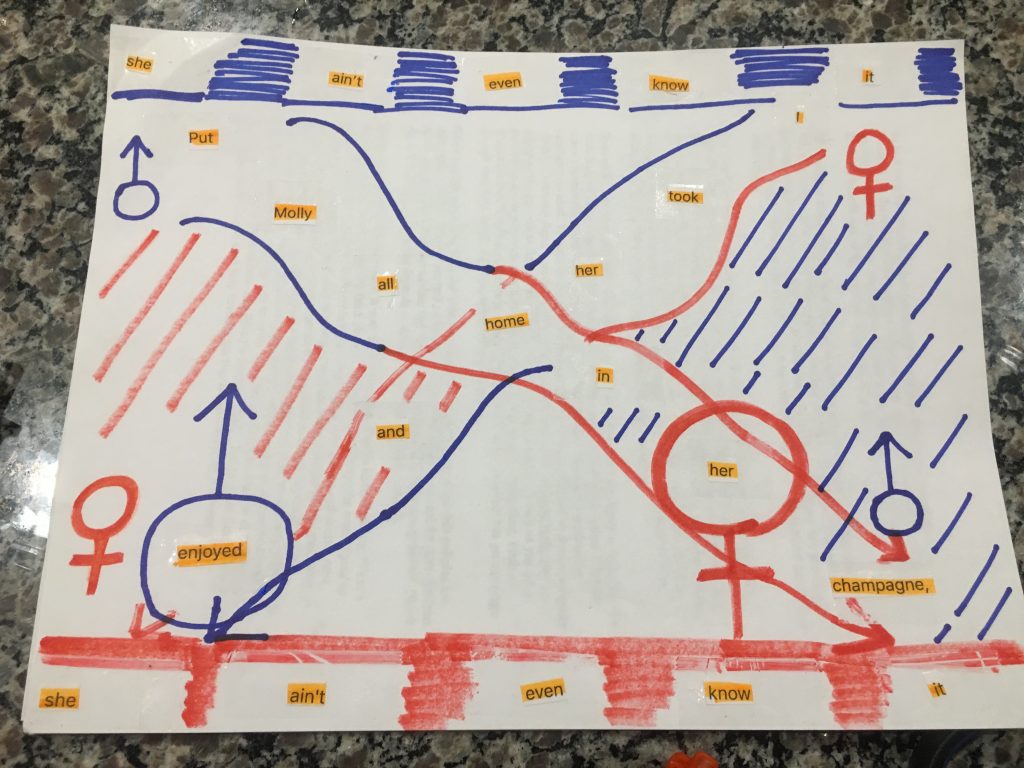The Adventures in World Making event that was held in Old Main 220, showcased eight SUNY Cortland graduate students discussing novels they read and topics on two discussion questions. The first four graduate students were discussing a novel each of them were assigned to. They talk about how the narrator’s dealt with coming to the United States and the characters experience of a culture shift. Amber Kent, a current graduate student, discussed the novel Nervous Condition by Tsitsi Dangarembga. Tambu, who is the main character of the story, is very poor in a white-dominated part of Africa called Rhodesia. Dangarembga, discusses throughout the book her experiences of the mistreatment of colonialism and oppression from the white colonists in the 1960’s. Amber gave a very brief summary of the novel, but the theme she developed from reading this is, “cultural shapeshifting”. The reason for her coming up with this theme is because Tambu becomes more fixed and established in a mission school she is involved in. Though the mission school has numerous amount of white young woman, she starts to embrace different beliefs from her traditional taught parents. The second graduate student, I didn’t really get her name and couldn’t understand her essay, but her novel she was assigned was Small Island by Andrea Levy. The third graduate student who presented her essay was, Liz. She talked about the novel, The Hickoriss Girl. Liz talked about how this novel relates to realism and the supernatural. By giving us a deeper analysis of characters Tilly and Jess she showed they that, “they endure powers to open the gates of the superbnatural”.
Brittany, who was the fourth graduate student to present her essay about the book, Americanah by Chimamanda Ngozi Adichie. She discussed the difference between the African and American culture and how the characters had seen racial differences in different parts of the world. One of the topics that Brittany talks about is how Adichie discusses that there is still a racial hierarchy in Nigerian culture, however, as light-skinned or mixed-race people are considered more attractive. She uses the example of the people on magazines are those of lighter skin. But when Ifemelu, who is the wife of Obzinie, and Obinze go to America and England respectively, they find that racism is a much more pervasive part of life. These four graduates presented these books in The Adventures in World Making event, to provide the audience of the Coming of Age Story.
Before I left to go to my last class of the day, I heard the presentation of Mike, who is a graduate student with Professor Savonick. For his presentation, he had to write an essay about two discussion questions. The first discussion question was, what does race, class, gender, and language play in equality? The second question was, How does text move us to think about gender and race differently? I didn’t to stay for much of Mike’s presentation, but I got a good portion of his presentation. He talked about the Tangentials and how we as people dismiss them for personal gain. Tangentials are according to Mike, “diverging from a previous course or line”. He link to this to the idea of people can’t really seem to provide equality in race, class, gender, and language because of the tangentials that are rather more favorable. The Adventures in World

